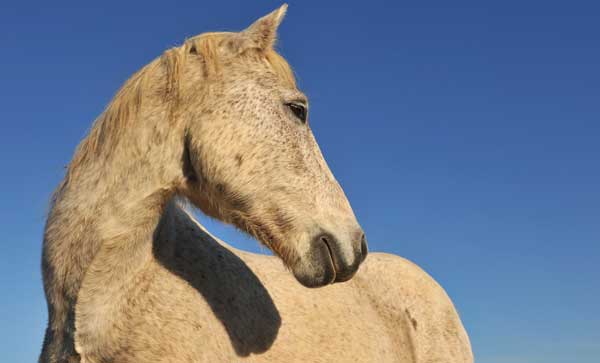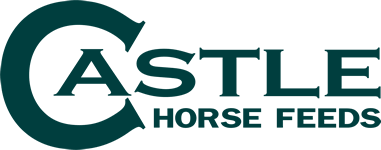
Horses today are living longer and well into old age, thanks to advances in veterinary treatment and horse care. There is no exact threshold for when your horse is officially ‘old’ and all horses age at different rates, but if your horse is beginning to show signs of age such as a change in condition then it may be time to consider a more suitable feeding regime. Lisa Elliott (MSc) – nutritionist at Castle Horse Feeds – shares some essential dietary tips to keep your veteran healthy and happy in his golden years.
Supply good quality, easily digestible fibre
Good quality forage should always form the foundation of your horse’s diet, including veterans, but if your horse struggles with chewing, adapting the type of fibre can help. Consider offering haylage, short fibre chops, pelleted fibre (which can be soaked into a mash) and soluble fibres e.g. unmolassed beet pulp, as these are easier to chew and digest and help add essential calories which may be lost through less efficient chewing and digestion of an older horse.
Feed oil for condition
Feeds high in fats and oil contain up to 2.5 times more energy than cereals and are a useful calorie source for weight gain. Linseed meal can be an excellent choice and is rich in Omega 3 fatty acids which have anti-inflammatory properties to support veterans with arthritis or respiratory allergies. Linseed is also known to boost the immune system, which is great for veteran horses who often have decreased immunity.
Provide good quality protein
Muscle loss and a reduced ability to digest protein means that the older horse will normally have a higher requirement for quality protein. Feeds with a protein content of 12-14% are best to meet their increased protein needs. Good quality protein can also be provided by the addition of a wholesome, good quality balancer containing essential amino acids.
Use controlled amounts of cereals
Older horses who are still in regular work and needing extra condition can benefit from controlled levels of cereal starch in their diet, to provide additional calories. Cereals should be micronised for optimum digestibility, which is particularly important for veteran horses, but to prevent behavioural problems and digestive upset, feeds containing <20% starch are best.
Ensure access to water
Older horses are normally more prone to impaction colic, so it’s important they are drinking regularly to reduce this risk. Dehydration is also common, so making sure your veteran has constant access to fresh, clean water is vital. Adding tempting flavours to water or placing apples in water buckets can help encourage regular drinking for good hydration.
Provide essential vitamins and minerals
Correct levels of micronutrients are essential because less efficient digestion can reduce the availability of important vitamins and minerals for your older horse, such as antioxidants for immunity. Feeding a wholesome, nutritious and highly digestible balancer, free from cereal by-products, fillers and GMO ingredients should help meet your veterans’ needs.
Enhance Digestion
Yeast cultures have been shown to enhance fibre fermentation in the hindgut so feeding a balancer containing these can help your veteran get the most out of his fibre to promote health and condition.
Along with correct feeding, regular dental care is essential for older horses and some may need visits from the dentist every 6 months. Additionally, body condition scoring and regular use of a weigh tape is a good idea to help monitor your veteran’s condition.
If you have any questions about how to create the best diet for your veteran horse, you can email us at theteam@wordpress-388828-2624579.cloudwaysapps.com or call us on 01497 570345. Or fill in our Equine Diet Planner form with your horse’s details and we’ll get back to you with a personalised diet plan for your horse!
